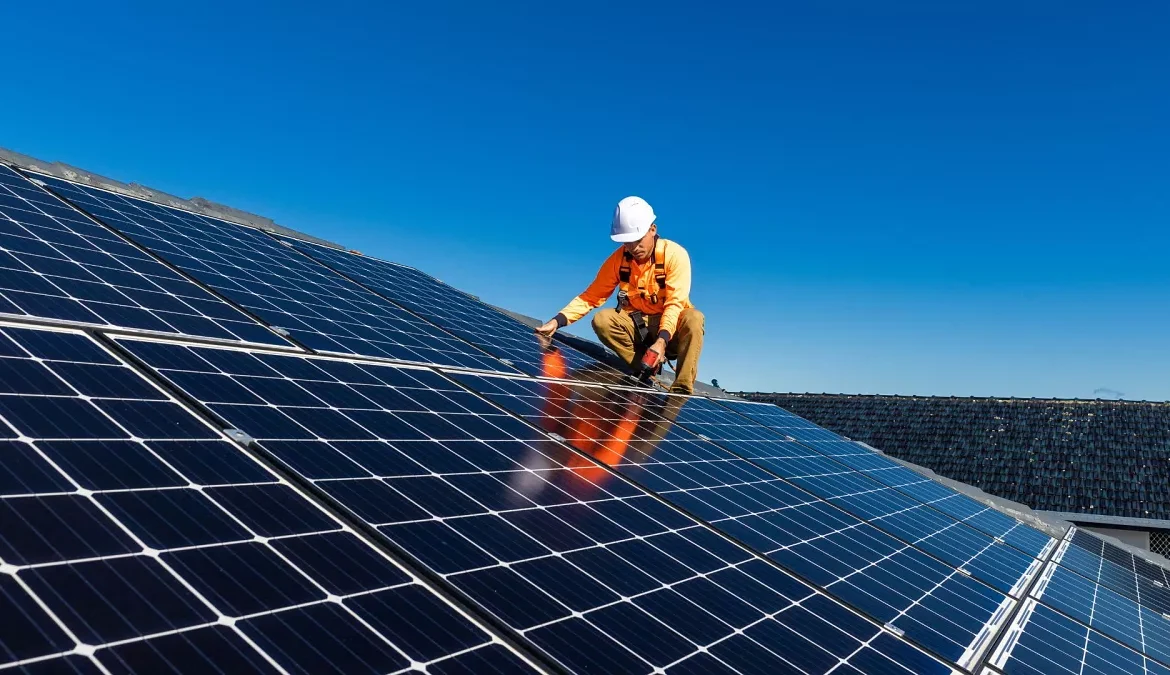Can You Save Money with Solar Panels?
Yes, solar panels can help you save money! Businesses and families can save money on electricity by utilizing Solár. One of the key benefits of solar energy is reduced dependence on traditional power sources, leading to lower utility bills. Solar energy benefits include government incentives, tax credits, and net metering, further enhancing savings. With solar energy saving, excess power can be stored or sold back to the grid, maximizing financial returns. Even though the initial investment might seem significant, the savings over time make it worthwhile. Solar panels eventually pay for themselves, offering decades of free electricity. So, can you save money with solar panels? Absolutely! They lower costs, raise real estate’s value, and help keep the environment cleaner. Purchasing solar energy is a creative, practical, and environmentally friendly decision.
Understanding Solar Energy
Solar energy is derived from the sun’s radiation, which is converted into electricity using solar panels. Homeowners and businesses may reduce reliance on traditional power networks with this clean and renewable energy source, resulting in significant cost savings. Energy-conscious consumers now find solar panels to be an appealing alternative due to their increased efficiency and affordability due to technology improvements.
Benefits of Solar Energy
Solar energy is an innovative, economical choice because of its many advantages. Let’s examine some of the main benefits of solar energy.
- Lower Electricity Bills
- One of the biggest benefits of solar panel installation is lowering electricity expenses. Producing your own electricity instead of depending on the grid can significantly decrease your monthly costs.
- Government Incentives and Tax Credits
- Numerous governments provide tax breaks and refunds to encourage the use of solar energy. By lowering the initial installation costs, these incentives make solar panels more accessible.
- Increased Property Value
- Homes equipped with solar panels tend to have higher property values. Buyers are willing to pay a premium for energy-efficient homes, leading to a better return on investment.
- Energy Independence
- Installing a solar panel system reduces your reliance on electricity providers, protecting you from rising energy costs and power outages.
- Environmental Benefits
- Solar energy is a clean, renewable source of power that reduces carbon emissions and helps combat climate change.
- Low Maintenance Costs
- Solar panels require minimal maintenance and can last 25-30 years, providing long-term savings and little upkeep.
Solar Energy Saving: How Much Can You Save?
The money you save with solar panels depends on several factors, including your energy consumption, location, and solar system size. Here’s how solar energy saving works:
- Energy Consumption: Households with high electricity usage benefit the most from solar energy.
- Sunlight Availability: Homes in sunny regions generate more solar power, leading to more significant savings.
- Net Metering: Some areas allow homeowners to sell excess energy back to reduce energy costs further.
- Battery Storage: Investing in a solar battery enables you to store excess energy for later use, decreasing your dependence on the grid.
Can You Save Money with Solar Panels? A Cost Analysis
The upfront cost of installing a solar panel system can range from $10,000 to $30,000, depending on the system’s size and efficiency. However, the long-term savings make it a worthwhile investment. Here’s an estimated breakdown:
- Installation Cost: $15,000 (after tax credits and rebates)
- Monthly Electricity Bill Before Solar: $150
- Monthly Electricity Bill After Solar: $20
- Annual Savings: Around $1,500
- Break-even Point: 6-10 years
Homeowners enjoy free electricity once the system pays for itself, saving thousands of dollars over its lifetime.
Comparing Solar Energy Costs to Traditional Electricity
Traditional electricity costs continue to rise due to inflation and supply chain disruptions. On the other hand, solar energy provides a stable and cost-effective alternative. Here’s a comparison of costs over 20 years:
- Traditional Electricity Costs: $36,000 (assuming $150/month and rising rates)
- Solar Panel System Cost: $15,000 (after incentives)
- Total Savings: Over $20,000
Is Solar Worth It for You?
If you’re wondering whether investing in solár is the right choice, consider these factors:
- Initial Investment vs. Long-Term Savings
- While the upfront cost may seem high, the long-term savings far outweigh the initial expense.
- Available Incentives
- Research tax credits and rebates that can significantly lower installation costs.
- Roof Suitability
- A well-positioned roof with minimal shading maximizes solar panel efficiency.
- Energy Usage Patterns
- Homes using the most electricity during daylight hours benefit the most from solar panels.
- Battery Storage Options
- Investing in solar batteries ensures continuous energy savings, even at night or during power outages.
Steps to Start Saving with Solar Panels
- Evaluate Your Energy Needs
- Analyze your electricity bills to determine how much energy you use.
- Get a Solar Assessment
- Consult with a solar provider to assess your home’s solar potential.
- Explore Financing Options
- Look for solar loans, leases, or power purchase agreements (PPAs) to make installation affordable.
- Choose the Right Solar Panel System
- Select a system that meets your energy needs and budget.
- Install Your Solar Panels
- Work with a certified installer to ensure a proper setup.
- Monitor Your Savings
- Use energy-tracking apps to monitor your electricity generation and savings.
Conclusion
In conclusion, can you save money with solar panels? Absolutely! Investing in solar reduces electricity bills, increases property value, and provides long-term financial benefits. The benefits of solar energy go beyond savings; they include tax credits, net metering, and a cleaner environment. With solar energy benefits, homeowners can enjoy energy independence and protection from rising electricity costs.Additionally, solar energy saving allows excess power storage, ensuring efficiency and maximum returns. While the upfront cost may seem high, the long-term savings far outweigh the initial investment. Solar panels are an innovative and sustainable choice, offering financial and environmental rewards.




